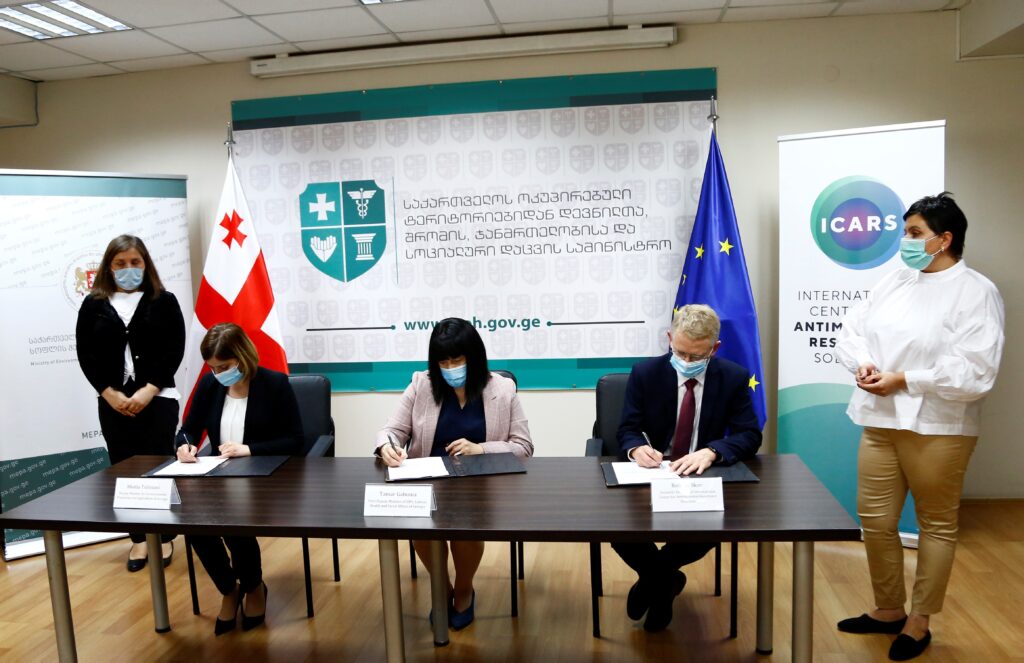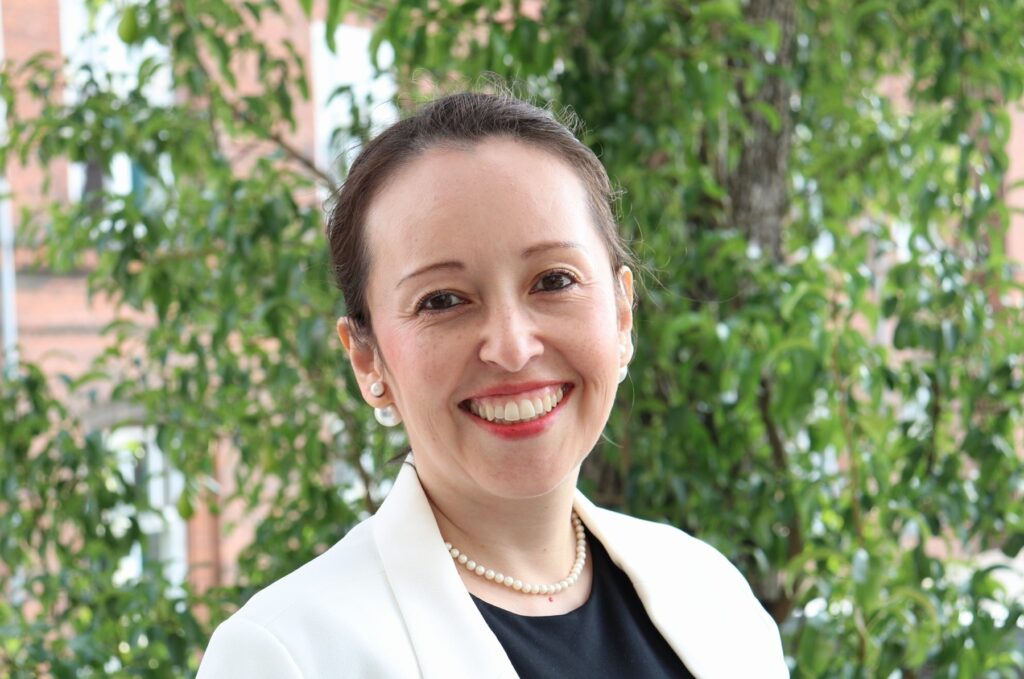Optimising use of antibiotics for Surgical Antibiotic Prophylaxis (SAP)
Context
Antimicrobial resistance (AMR) is a serious threat in Georgia and beyond. While in Georgia, actions to contain the development and spread of AMR have mainly focused on strengthening the surveillance systems and implementing modern methods for infection prevention and control; no concrete actions have been implemented to establish Antimicrobial Stewardship programs [ASPs].
Problem
In Georgia, as in many other parts of the world, there is a worrisome inappropriate use of antibiotics for surgical prophylaxis characterised by a high use of broad-spectrum antibiotics and prolonged dosing.

Project overview
The project has been implemented in ten hospitals, targeting the following surgical procedures: herniorrhaphy, hip joint surgery, endoprosthesis, and Caesarean section. The implementation of the ASP is organized across four Work Packages (WPs)
- Project management
- Systematic implementation of a mixed methods approach, including development of the WHO toolkit for antimicrobial stewardship including:
- development of context-specific SAP guidelines,
- education & training of the clinical teams on the guidelines systematic data collection, analysis and reporting of data.
- implementation of active surveillance of surgical site infections (SSI)
- implementation of the quality improvement methodology (Plan-Do-Study-Act-Adjust)
- Tailored Antimicrobial Resistance Program (TAP), qualitative methodology to identify the context-specific organizational and behavioral factors that support implementation and scale-up of the ASP.
- Economic evaluation
Outcomes
This project aims to foster the appropriate use of antibiotics for Surgical Antibiotic Prophylaxis (SAP) in selected departments of Georgian hospitals by implementing an antimicrobial stewardship program (ASP). The project aims to achieve 60% SAP guideline compliance within 12 months of launching the ASP. The main outcome measure is percentage of compliance with the four components of the SAP guideline which covers:
- antibiotic choice
- dose
- timing
- duration of prophylaxis.
Other outcomes include assessment of the prevalence of surgical site infections (SSI’s) for the selected procedures, and increased understanding of the context-specific organisational, behavioural and economic factors that support implementation and scale-up of the ASP.
This project will strengthen antimicrobial stewardship (AMS) at hospital level in Georgia by facilitating the establishment of a coalition of good practice centers in which key stakeholders such as the MoH, Public Health authorities, clinicians, managers of the hospitals, WHO-EURO and ICARS can demonstrate the relevance and sustainability of implementing AMS programs within the Georgian context.
Gloria Cristina Cordoba Currea, AMR Advisor, ICARS
Results
- The first three hospitals have completed one year of full implementation of the ASP program. Compliance with the SAP guideline has exceeded the expected 60%, and the results of a point prevalence survey after six months of finishing the quality improvement cycle have shown sustained compliance with the guidelines.
- The following four hospitals will finish the quality improvement cycle in March. Preliminary data shows a trend towards improvement without impacting on the incidence of surgical site infections.
- The last three hospitals have just finished the first part of the quality improvement cycle including implementation of the surgical site infection surveillance procedures.
- In partnership with The British Society of Antibiotic Chemotherapy three open access courses have been launched. These courses are available in Georgian and English and will remain available after the completion of the project to support capacity building during the nationwide scale-up phase of the AMS program.
- National implementation and evaluation of the SAP guidelines have been included as a priority action in the new AMR National Action Plan.
Facts
Region: Europe
Sector: Humans
Country: Georgia
Type: Project
Country partners: WHO Europe, Ministry of Internally Displaced Persons from the Occupied Territories, Labour, Health and Social Affairs (MoH), National Center for Disease Control and Public Health (NCDC), Healthcare professionals from selected hospitals, Georgian academic institutions.
Timescale: 1st September 2021 - 30th August 2024
ICARS funding: 499.960 USD
ICARS Science Team


Resources
Share
Share this project on socials

